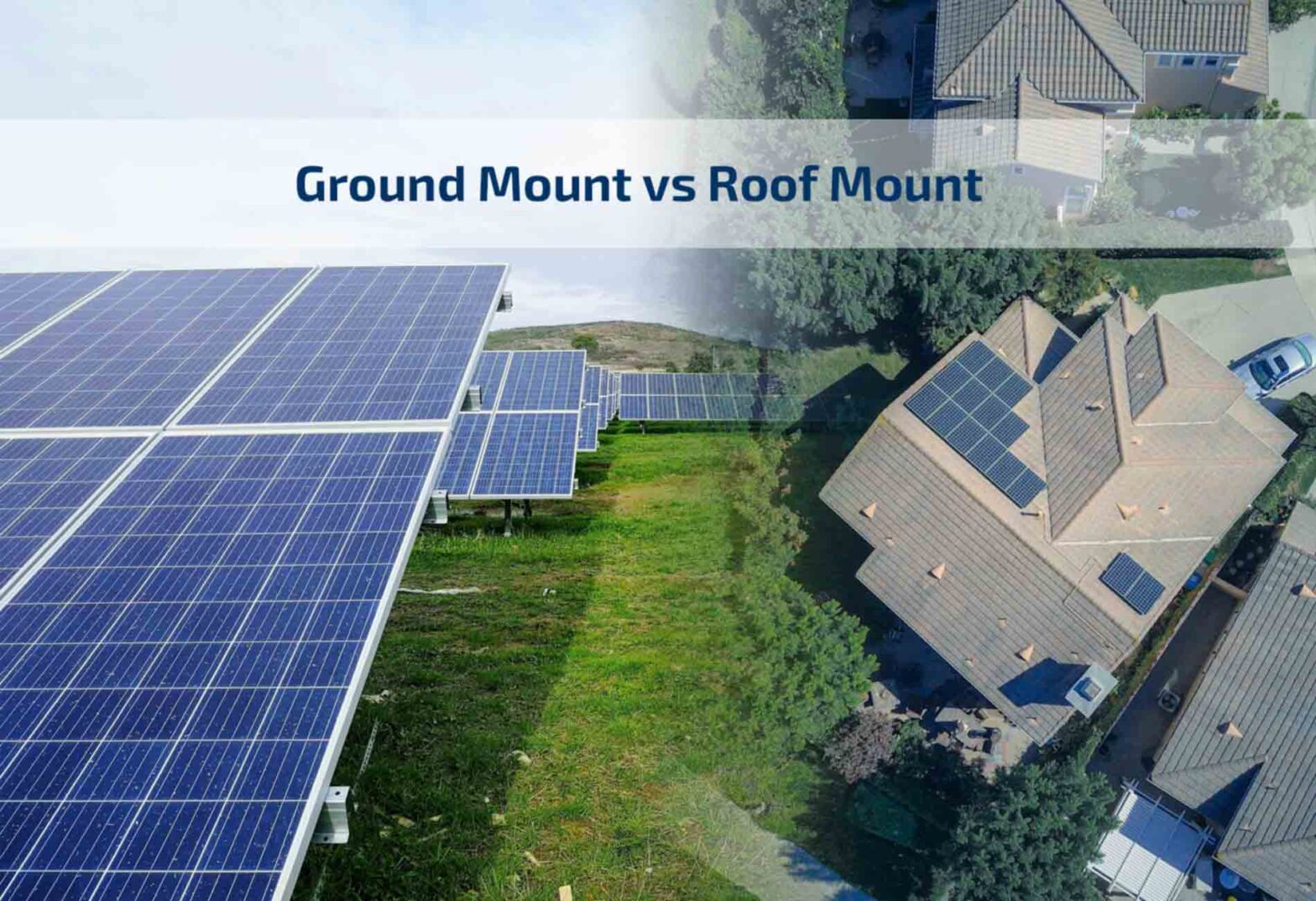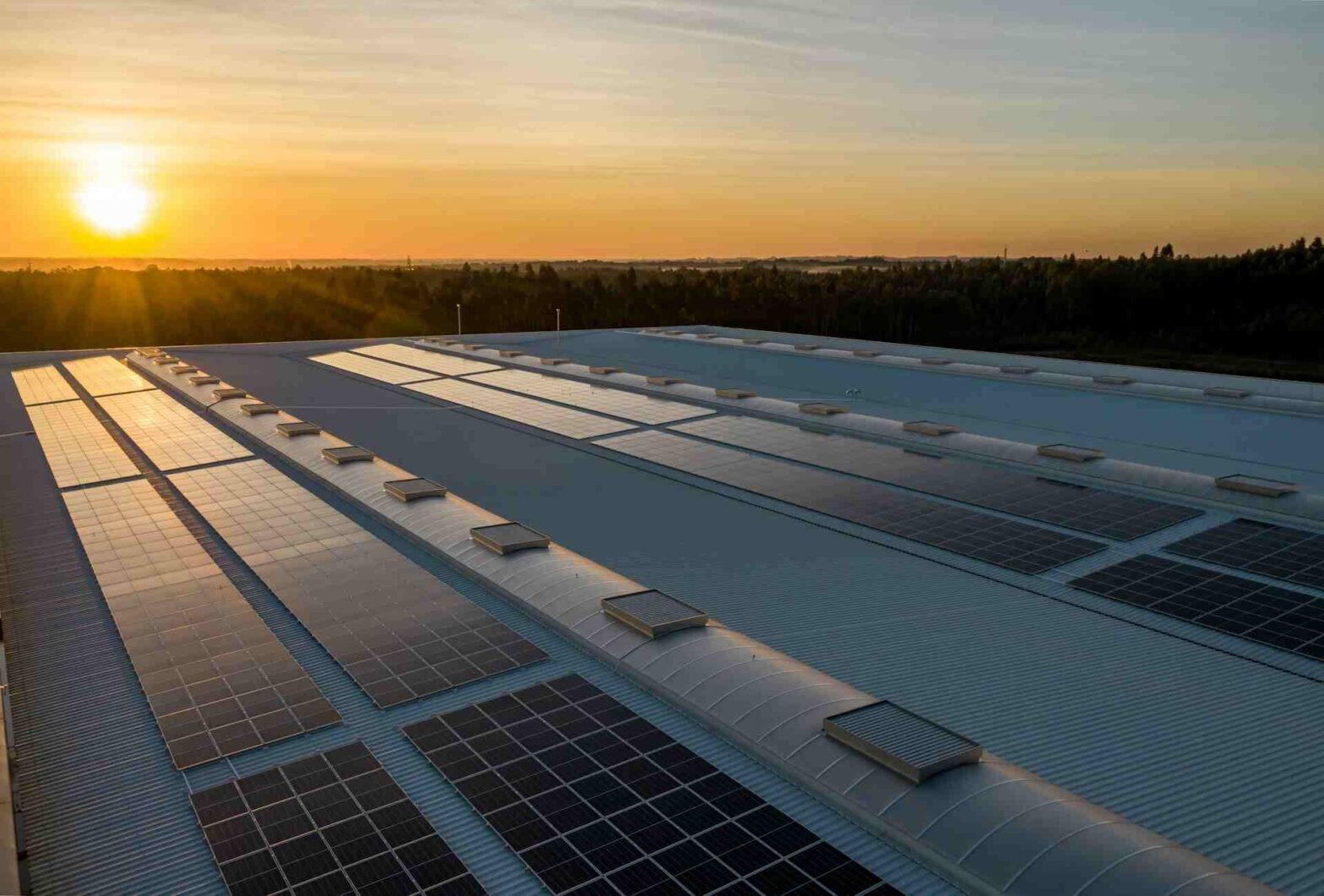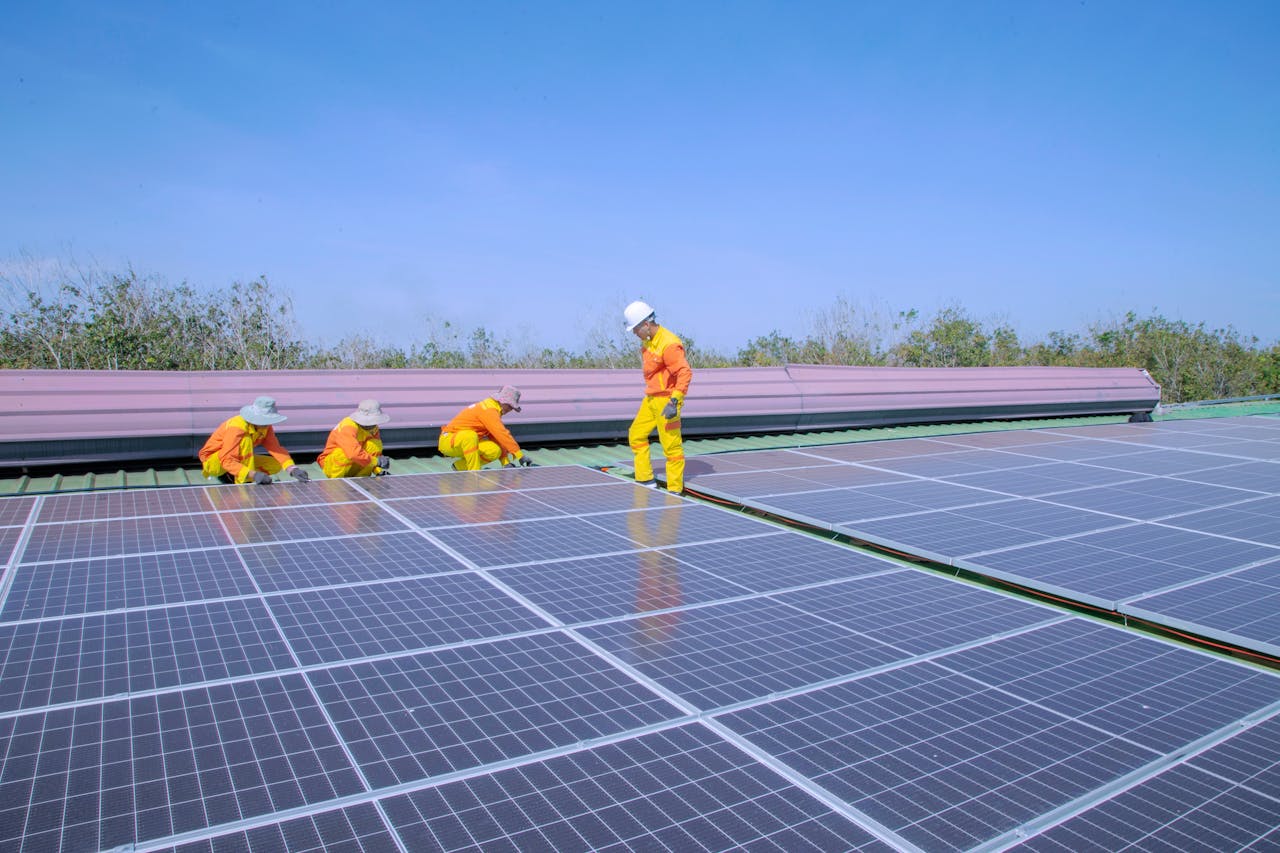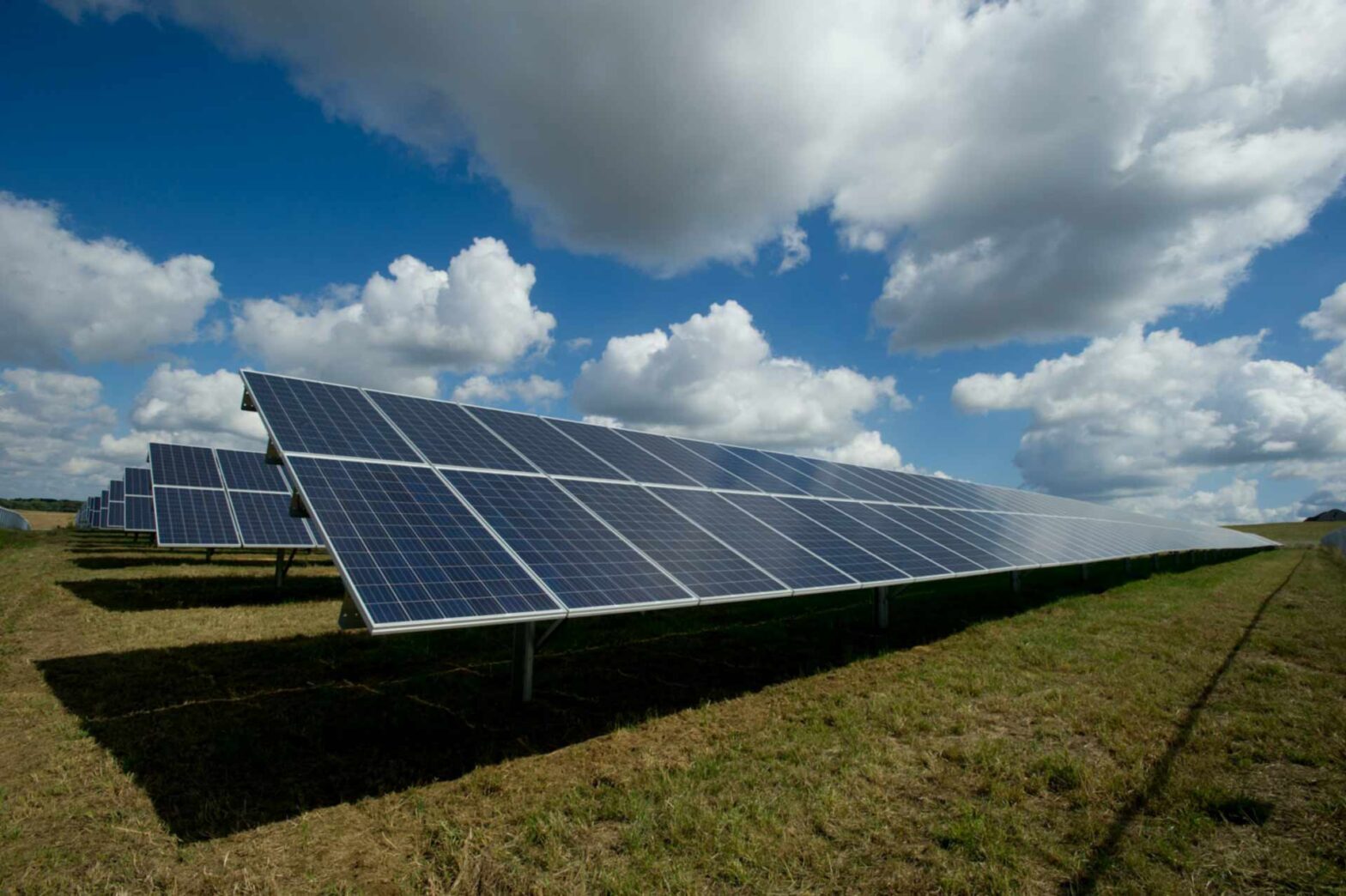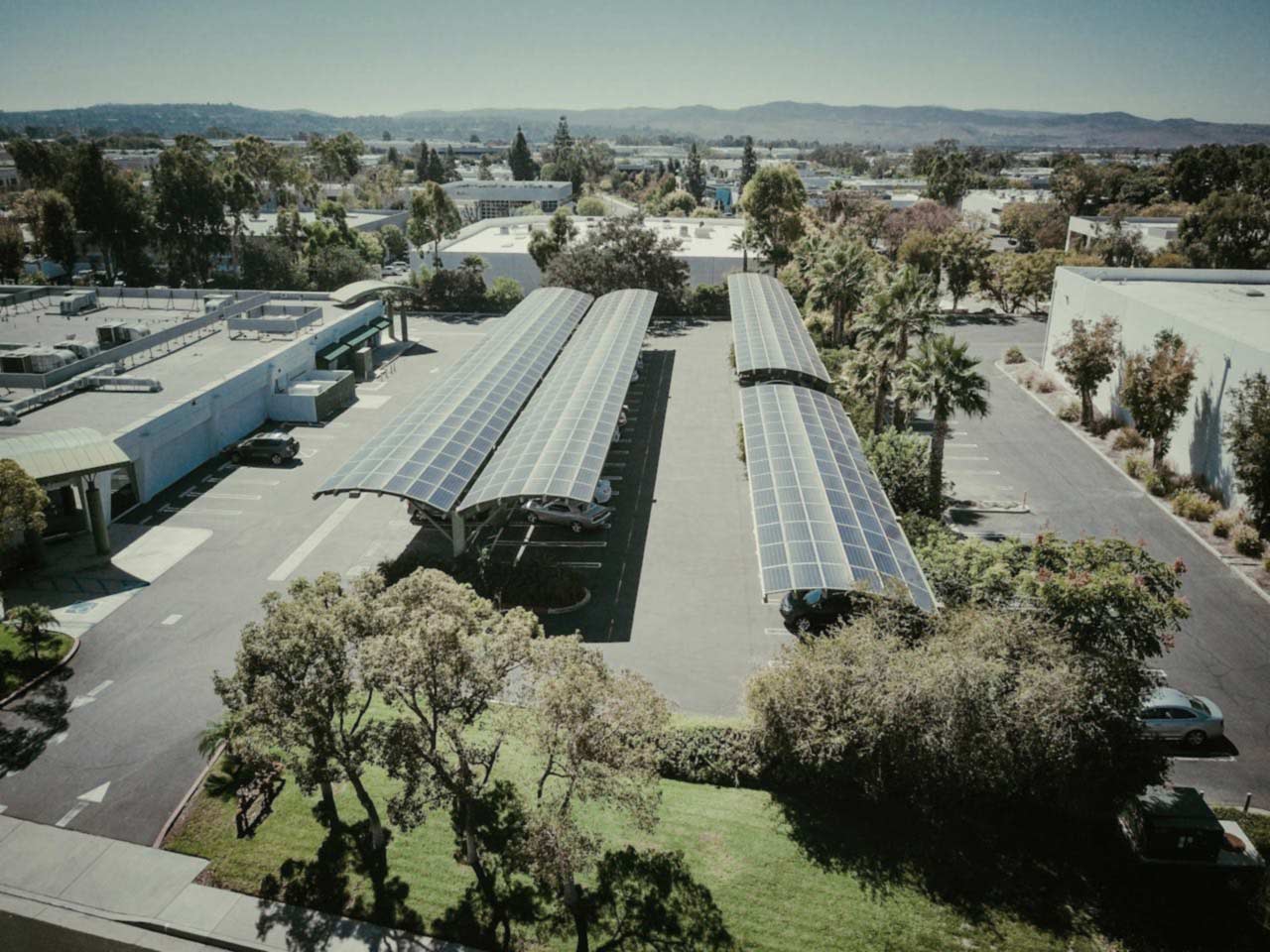Did you know that India’s solar capacity reached 102.57 GW by February 2025 through a combination of 78.47 GW ground-mounted systems and 16.66 GW rooftop solar panels?
More businesses in India are now thinking about using solar power for their operations, and the first big question that comes to their mind is: Should I install solar panels mounted on the ground or roof?
Understanding the Basics: What’s the Difference?
Solar panels can be installed either on the ground or on rooftops.
Ground-mounted solar panels rest on frames that remain fixed to the land. Rooftop solar power plants are installed on top of your building. Rooftop solar power plants find their place on the top of your building structure. Both use the same solar panel technology, but they’re different in how you maintain them, install them, and how well they work.
The biggest difference between ground mounted solar panels vs roof mounted ones is simply where they’re placed – either on your roof or on your land. This one difference changes a lot about their cost, how efficient they are, how easy they are to maintain, and whether they’ll work for your property.
Let’s look at what makes these two types different so you can pick the right one for your needs.
Pros and Cons of Ground Mounted Solar Panels
We explore here the main advantages and disadvantages of ground-mounted solar systems to show if that’s a choice that you need.
Benefits:
– Optimal Positioning: Regardless of the roof configuration, ground mount solar systems can be tilted and oriented to generate the most energy. It allows for ideal sun exposure throughout the day.
– Better Airflow and Cooling: Improved ventilation to the panels within the system makes them operate at lower temperatures, thus increasing system efficiency and energy production.
– No Roof Structural Concerns: The roof structure will remain intact because the system avoids overloading and unnecessary drilling that could lead to leaks later.
– Easier Access for Maintenance: The ground-level panels enable convenient maintenance activities, including cleaning, inspection and repair work, which results in an extended lifespan of the system together with maximum system performance at peak hours.
– Scalability: You can easily scale up ground-mounted systems to meet increasing energy needs without being restricted by roof dimensions.
Limitations:
– Higher Installation Costs: An analysis of ground mount vs roof mount solar cost shows that ground-mount systems require extra materials and labour for installation as they need a foundation, mounting structure and trenching for cable connections. Their installation will cost you nearly 10-30% more than rooftop solar panels.
– Space Requirements: These systems occupy a lot of space, which could otherwise be used for other purposes and are hence unsuitable for properties with limited space.
– Potential Planning Permission Complications: The procedure for obtaining planning permission extends longer when you choose ground-mounted systems due to their designation as new property structures.
– Property Aesthetics: You should choose roof mounted solar panels if the visual appeal of your property matters most. Ground-mounted solar panels are installed in open areas, which may unexpectedly create a visually unappealing look.
– Vulnerability to Damage: Solar systems installed on the ground face continuous exposure to animal intrusion, weather events, and intentional human damage (vandalism).
Pros and Cons of Rooftop Solar Panels
Here are the advantages and disadvantages of roof-mounted solar installations. You should think about these before you invest in them.
Benefits:
– Lower Installation Costs: The initial cost of roof installations remains lower because they require minimal materials and labour. The roof already serves as the structural foundation, so there’s no need for additional construction work.
– Space Efficiency: The best rooftop solar panels are great for properties that have little land area, as they use otherwise unused roof space. In particularly urban settings where getting space is a premium, this is particularly beneficial.
– Simpler Permitting Process: The permit application process for rooftop solar panels is easier, as you’re not building any new structure on your property.
– Aesthetics: Roof-mounted systems keep your property looking nice since the panels blend with your building structure without creating visible disruptions.
– Protection for Your Roof: Also, they lower the temperature of the roof by 5° Fahrenheit. So, you’ll be spending less money on cooling your house.
Limitations:
– Installation Limitations: Your roof’s orientation, angle and available space will restrict the system size and its efficiency. Not all roofs sit directly in the best direction to allow for full solar exposure.
– Higher Operating Temperatures: Since rooftop solar panels are limited by airflow, they normally operate at higher temperatures compared to ground surface panels, and 10-25% of their efficiency can be lost in hot weather.
– Accessibility Issues: Panels mounted on the roof are more challenging to clean and maintain due to the steepness of the roof or its inaccessibility.
– Complications with Roof Repairs: If you have repairs to your roof or need to replace the roof entirely during the life of your solar panels (around 25 to 30 years), you will have to take off and reassemble the whole system, adding significant costs.
– Structural Considerations: Not all roofs can take the additional weight of solar panels, and some will require structural reinforcement before being allowed to install.
Also Read: Enerparc Energy India Honoured for Pioneering 2.7 MW Rooftop Solar Project
Cost Comparison
As reported in Research in Energies (2020), rooftop solar panels, on average, have 2.9% more capacity utilisation and up to 23.7% lower energy costs compared to ground-mounted installations.
However, ground-mounted solar offers positioning flexibility and easier maintenance. While initially 10-30% more expensive, ground systems may provide better long-term value in certain environments with sufficient land.
5 Factors to Consider When Making Your Decision
The right solar solution for you depends on your property’s unique characteristics and personal priorities.
– Available Space: A rooftop solar system works best for properties that have restricted land availability. Large properties benefit more from ground-mounted systems as they provide better flexibility.
– Roof Condition and Orientation: A south-facing roof that’s in good condition serves as the best platform for solar panel installation. Older roofs with poor orientation may require ground-mounted systems for more suitable deployment.
– Local Climate: Ground-mounted systems can be adjusted to survive heavy snowfall or high winds when operating in locations with such severe weather patterns.
– Local Regulations: Verify with local authorities about any installation restrictions or special requirements before choosing either a roof-based or ground-based solar system.
– Budget: Rooftop solar panels cost less to install than ground-based systems, though ground solutions might deliver higher performance results.
Frequently Asked Questions (FAQs):
Which type of solar panel system is more efficient?
The efficiency level of ground-mounted systems lies between 7-15% higher than rooftop solar panels. It’s because they’re less restricted with airflow and positioning than rooftop solar panels.
How long do solar panels last on a roof versus on the ground?
The operational lifespan of these systems extends to 25 to 30 years until they reach their end of service. However, the lifespan of ground-mounted panels exceeds rooftop solar panels as their maintenance process is easier than the latter.
Do solar panels work during power outages?
Not automatically. You’ll need battery storage or special inverters to maintain power during grid failures.
To Sum Up
Rooftop solar panels cost less and don’t take up extra space, which works well in urban settings where land is limited. These roof systems are best when you want to save money on electric bills without changing your property layout.
Solar panels on the ground work better and are easier to fix when problems happen, but they need more land and cost more money to set up. The ground systems can be positioned at the perfect angle to catch more sunlight throughout the day. Both types of solar panels can last for many years, but you need to choose the right kind for your situation.
Contact Enerparc for a personalised property assessment to maximise your solar investment. Our experts can visit your home, check your property, and help you decide which solar option is best for your needs and budget.
